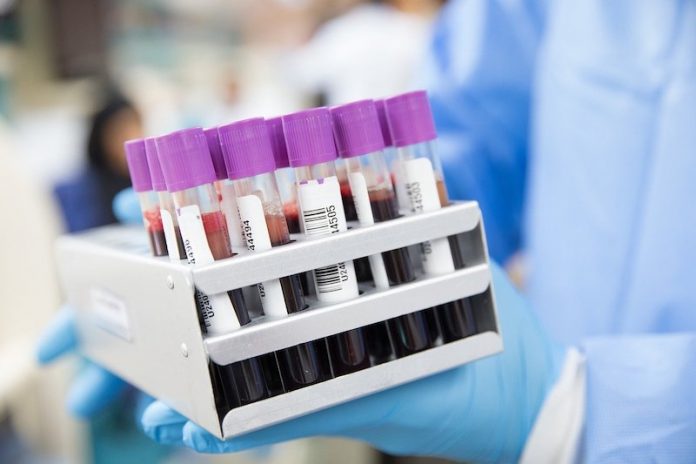
In a new study, researchers found a blood test that can detect more than 50 types of cancer.
They found that it is accurate enough to be rolled out as a multi-cancer screening test among people at higher risk of the disease, including patients aged 50 years or older, without symptoms.
The test also predicted where in the body the cancer is located with a high degree of accuracy, which could help doctors choose effective diagnostic tests.
GRAIL, Inc. (California, U.S.), the company developing and funding the research, has now made the multi-cancer early detection test available in the U.S. by prescription only, and to complement other, existing screening methods such as those for breast, cervical, prostate, lung and bowel cancers.
Many of the cancers that the test is capable of detecting do not have screening tests available, such as liver, pancreatic and esophageal cancers, which are among the most deadly and where early detection could make a real difference.
The team says finding cancer early, when treatment is more likely to be successful, is one of the most significant opportunities doctors have to reduce the burden of cancer.
These data suggest that, if used alongside existing screening tests, the multi-cancer detection test could have a profound impact on how cancer is detected and, ultimately, on public health.
The test involves taking a sample of blood from each patient and analyzing it for DNA, known as cell-free DNA (cfDNA), which tumors (and other cells) shed into the blood.
Genomic sequencing is used to detect chemical changes to the DNA called “methylation” that controls gene expression, and a classifier developed with machine learning (artificial intelligence) uses these results to detect abnormal methylation patterns that suggest cancer is present.
In addition, the machine learning classifier can predict where in the body the cancer is located. Results are available within ten business days from the time the sample reaches the lab.
The third and final sub-study of the new test examined the performance of the test in 2,823 people already diagnosed with cancer and 1,254 people without cancer.
It detected cancer signals from more than 50 different types of cancer and found that across all four cancer stages (I, II, III, IV), the test correctly identified when cancer was present (the sensitivity or true positive rate) in 51.5% of cases.
The test’s specificity (the true negative rate) was 99.5%, meaning that the test wrongly detected cancer (the false positive rate) in only 0.5% of cases.
For all cancers, detection improved with each cancer stage with a sensitivity rate of 16.8% at the early stage I, 40.4% at stage II, 77% at stage III and 90.1% at stage IV—the most advanced stage when symptoms are often showing.
The sensitivity varied by type of cancer. In solid tumors that do not have any screening options, such as esophageal, liver and pancreatic cancers, overall sensitivity of the test was twice that for solid tumors that do have screening options, such as breast, bowel, cervical and prostate cancers: 65.6% compared to 33.7%.
Overall sensitivity in cancers of the blood, such as lymphoma and myeloma, was 55.1%.
In addition, the multi-cancer early detection test correctly identified the tissue in which the cancer was located in the body in 88.7% of cases.
The team believes that cancers that shed more cfDNA into the bloodstream are detected more easily. These cancers are also more likely to be lethal, and prior research shows that this multi-cancer early detection test more strongly detects these cancer types.
Cancers such as prostate shed less DNA than other tumors, which is why existing screening tests are still important for these cancers.
If you care about cancer and your health, please read studies about a big cause of deadly brain cancer and findings of this type of drug may do double duty on heart disease and cancer.
For more information about cancer prevention and treatment, please see recent studies about this new vaccine may prevent many cancers and results showing that bacteria in mouth may lead to spread of colon cancer.
The study is published in the Annals of Oncology. One author of the study is Dr. Eric Klein.
Copyright © 2021 Knowridge Science Report. All rights reserved.



